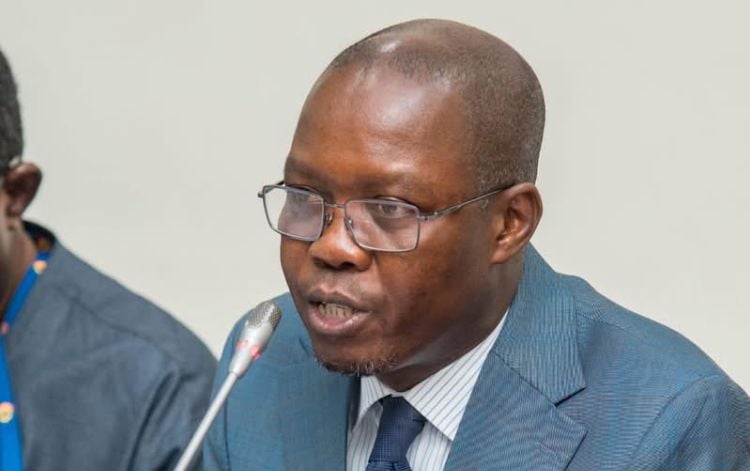The parliamentary vetting process for ministerial nominees Kwabena Mintah Akandoh and Samuel Okudzeto Ablakwa descended into chaos on January 30, 2024, due to a staunch resistance from the Minority caucus. The disruption stemmed from a perceived lack of collaboration and the alleged “smuggling” of nominees, leading to accusations of procedural irregularities. The Minority’s disapproval escalated into a physical demonstration, with members breaking tables and microphones in an attempt to halt the proceedings after the Majority side insisted on continuing the vetting process. This clash highlights the deep divisions within Ghana’s parliament and the escalating tensions surrounding the appointment of new ministers.
At the heart of the controversy lies a disagreement over the scheduling of the vetting process. According to Bernard Ahiafor, Chairman of Parliament’s Appointments Committee and MP for Akatsi South, the Minority Leader had initially agreed to the vetting of Kwabena Mintah Akandoh, the Health Minister-designate. Akandoh himself had reportedly contacted the Minority Leader, requesting to be vetted on that particular day due to the presence of visitors from his constituency, Juaboso. This agreement seemed to pave the way for a smooth vetting process, but a sudden shift in the Minority’s stance led to the dramatic disruption.
Ahiafor further revealed that First Deputy Speaker of Parliament, Alexander Afenyo-Markin, had also been informed of Akandoh’s request and had initially expressed no objections. However, Afenyo-Markin later backtracked, citing pressure from his party as the reason for his change of heart. This sudden U-turn, according to Ahiafor, came as a surprise, especially given the prior agreement between the Minority Leader and Akandoh. This reversal underscores the influence of party politics on parliamentary processes and raises concerns about the transparency and fairness of the vetting procedures.
The Minority’s claims of a lack of collaboration and the “smuggling” of nominees suggest a deeper distrust in the Majority’s handling of the appointments process. The term “smuggling” implies a deliberate attempt to bypass established procedures and potentially force through nominations without adequate scrutiny. This perception of procedural manipulation likely fueled the Minority’s resistance, leading to the chaotic scenes witnessed during the vetting session. The incident highlights the importance of clear communication and consensus-building in parliamentary proceedings, particularly in sensitive matters like ministerial appointments.
The disruption of the vetting process raises significant questions about the functioning of Ghana’s parliament and the ability of its members to engage in constructive dialogue. The breakdown of decorum and the resort to physical disruption reflect a worrying trend of escalating tensions and a lack of respect for parliamentary procedures. This incident underscores the need for improved communication and greater cooperation between the Majority and Minority sides to ensure the smooth functioning of parliament and the upholding of democratic principles.
The events surrounding the vetting of Akandoh and Ablakwa serve as a stark reminder of the challenges facing Ghana’s democracy. The incident reveals the potential for political maneuvering and partisan interests to undermine parliamentary processes. It also highlights the importance of transparency and accountability in government appointments and the need for a robust and effective vetting process that ensures the suitability of candidates for ministerial positions. Moving forward, it is crucial for all parties to engage in constructive dialogue and uphold the principles of democratic governance to ensure the stability and effectiveness of Ghana’s political system.


